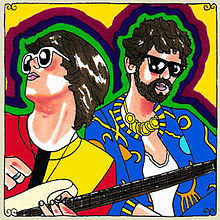
Selflessness Part of Who We Are?
When I was a reporter, I did a story about Ed, a man in his 80s who took round-the-clock care of his demented wife. Alzheimer’s disease had already attacked her motor skills. She could make noises but couldn’t form words; she could barely move her limbs and spent most of her time standing or sitting still, seemingly staring into emptiness.
Ed bathed her, took her to the bathroom and fed her. He wore an old tweed sport coat, one pocket bulging with a wind-up alarm clock which he set to go off every four hours. It had a loud, irritating ring, but it signaled when she took medication and he never missed giving it to her exactly on time, day and night.
Even though Ed had been doing this for 10 years, I never heard a complaint from him. On the contrary, he took it all as the normal thing to do when someone, especially a loved one, needs help. And she was the love of his life.
The Power of Love
I was deeply moved by his dedication, impressed by the lengths to which human beings often take care of each other. And I was reminded of the power of love, capable of moving us to incredible acts of selflessness.
I know, some social scientists don’t see this kind of dedication as selfless, maintaining that it’s really a way for us to feel good about ourselves. A certain profane word signifying bovine excrement comes to mind here, but instead I’ll use a less offensive British term, “Bollocks!”
The kind of behavior exhibited by Ed isn’t all that uncommon, in fact. From the small kindnesses to the extreme of giving one’s life for another, it seems to be an important part of who we are, or at least who we are meant to be.
I thought of Ed when I decided to write about the primacy of love for people searching for God. Love is undoubtedly the most commonly written and sung about word and the most universally and consistently ignored.
It gets obscured by all kinds of other human feelings and viewpoints, sometimes confused with political correctness, sometimes used as a weapon in the culture wars, sometimes traded in for cheap imitations.
For my money, no better description of the kind of love that people searching for God should have can be found than in Paul’s First Letter to the Corinthians in the Christian Bible.
As you may recall, it goes, “If I speak with the tongues of men and of angels, but have not love, I am a noisy gong or a clanging cymbal. And if I have prophetic powers, and understand all mysteries and all knowledge, and if I have all faith, so as to move mountains, but have not love….”
The writer isn’t against speaking in tongues, prophetic powers or “all faith;” just saying that they are important and useful only if love is present. You might say that love is the catalyst for the life that should be lived by a person seeking God, a sine qua non.
Substitutions
But it’s so easy to substitute other things – ideas, attitudes, behaviors – for love. We’re easily thrown off track by political or social views, confusing them with love. And we believe that religious practices or acts of charity – which can be motivated by something other than love – can replace it.
Maybe we need a modern version of the tract from Corinthians, something that goes like this:
If I go to church regularly but don’t have love….
If I have the minister, priest or rabbi over for dinner but don’t have love…
If I serve meals to the homeless but don’t have love…
If I tithe faithfully but don’t have love…
If I’m faithful to a political party that opposes abortion but don’t have love…
If I’m faithful to a political party that tolerates abortion but don’t have love…
If I’m cool, prosperous and “with it” but don’t have love….
Ed himself was a quiet guy but he spoke volumes about the primacy of love by the selfless way he lived. His would be an antonymous verse in the language of Corinthians.
If I love selflessly, giving of myself generously and wholly to others, I’m very close to God.




